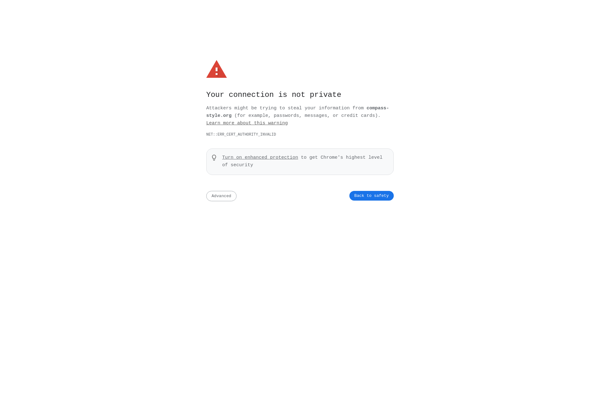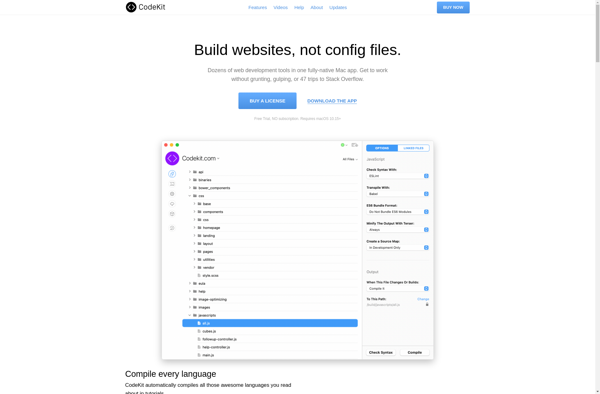Compass (CSS framework)

Compass: Open-Source CSS Framework for Faster Stylesheet Development
Compass is an open-source CSS framework that makes writing stylesheets faster and easier. It provides mixins, functions, and other tools to help generate CSS code programmatically instead of writing repetitive code manually.
What is Compass (CSS framework)?
Compass is an open-source CSS framework and Ruby library that streamlines the process of writing CSS code. First released in 2009 by Chris Eppstein and Scott Davis, Compass aims to make CSS development more efficient by providing a collection of mixins and functions that generate cross-browser CSS output.
Some key features of Compass include:
- Mixins - Compass comes with over 200 mixins for CSS3 properties like border-radius, box-shadow, transition, etc. Instead of writing manual CSS, developers can @include mixins in their Sass/SCSS code to output clean CSS.
- Helpers - Compass provides color and sprite helpers to easily manage colors and sprites in stylesheets.
- Typography - The typography module has mixins for handling fonts, vertical rhythm, etc.
- Utilities - Compass offers functions and mixins for dealing with images, math, units, and other common tasks.
- Flexibility - Developers can choose to use parts of Compass by requiring only certain modules instead of the entire framework.
- Customizability - Compass is built with Sass, so developers can easily customize Compass features by overriding variables, maps, mixins, and functions.
With its wide range of mixins and functions for streamlining CSS development, Compass helps web developers write stylesheets faster and more efficiently across browsers. It eliminates the need to write verbose CSS manually and has been used on many major websites and web apps.
Compass (CSS framework) Features
Features
- Modular and component-based architecture
- Mixins for reusable styles
- Functions for programmatically generating styles
- Grid system for layouts
- Typography system
- Helpers for common CSS tasks
Pricing
- Open Source
Pros
Cons
Official Links
Reviews & Ratings
Login to ReviewThe Best Compass (CSS framework) Alternatives
Top Development and Css Frameworks and other similar apps like Compass (CSS framework)
Here are some alternatives to Compass (CSS framework):
Suggest an alternative ❐CodeKit
